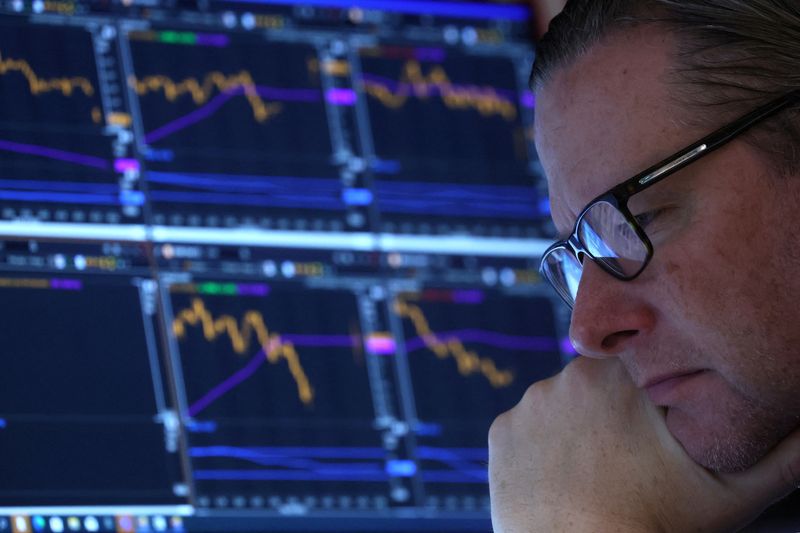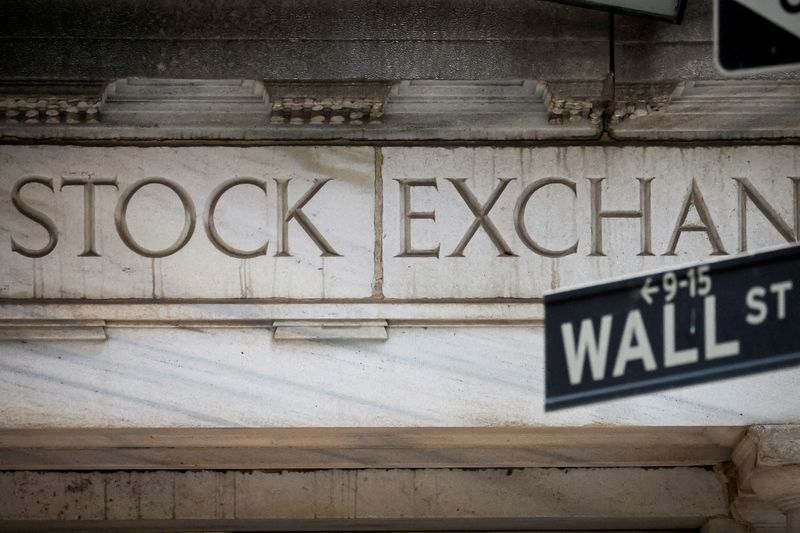By Caroline Valetkevitch
(Reuters) - Investors gave a muted welcome to the U.S. House of Representatives passing a bill that would suspend the government's borrowing limit and avert default, with market focus now turning to the Senate and the interest rate outlook.
Asian markets were trading higher when the bill cleared the house and held their gains. Investors nudged S&P 500 futures from slightly negative back to flat. Treasury yields rose marginally.
The Republican-controlled House voted 314-117 to send the legislation to the Senate, which must enact the measure and get it to President Joe Biden's desk before a Monday deadline, when the federal government is expected to run out of money.
"This has gone through with a very big majority, so there's enough bipartisan support that it's very hard to believe this isn't going to be even more of a formality in the Senate," said National Australia Bank (OTC:NABZY) head of currency strategy, Ray Attrill.
"What it does is turns the attention to the incoming data and the Fed meeting this month. It obviously removes one potential obstacle to the Fed moving this month." The bill would suspend the federal government's borrowing limit until 2025, allowing the Treasury to sell debt to pay its obligations. Two-year Treasury yields rose 2.7 basis points to 4.417%, while currency markets were broadly steady.
Investors are widely expecting the deal to get passed, but it could go right down to the wire. Senate consideration of the bill could take most of a week, and it would need to pass the bill without changes, otherwise it must return to the House.
A passed bill would then go to the White House for Biden to sign into law.
If the deal passes, "it would take this issue off the table for the next couple of years and could be a tailwind for markets in June," wrote Brad McMillan, chief investment officer for Commonwealth Financial Network, in a Wednesday note.
The S&P 500 closed down 0.6% on Wednesday in a decline some analysts pinned partly on remaining uncertainty over the vote. The index is up nearly 8.9% year-to-date and trading near its highest levels since August 2022.
Debt ceiling concerns periodically weighed on stock markets over the last week, although most investors expected an 11th-hour agreement. Worries have been more apparent in the Treasury market, where some investors had for weeks avoided maturities coinciding with a possible default.

Investors have viewed the possibility of a U.S. default as an unlikely but potentially catastrophic event for global markets.
"Markets have taken the good news," said Jarrod Kerr, chief economist at Kiwibank. "We've seen a muted reaction... I think focus is back on Fed policy. There are still risks, but I do think that a deal will be done and things will calm down."
